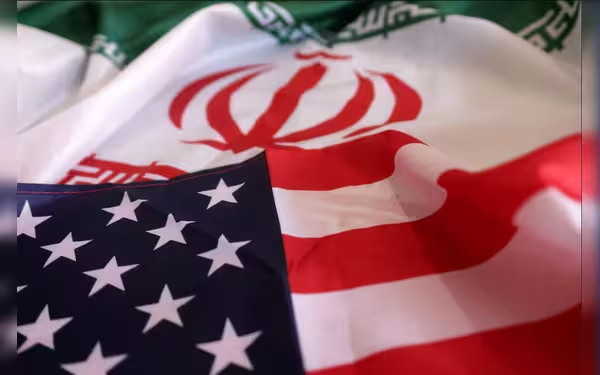Saturday, November 16, 2024 05:47 PM
US Imposes Sanctions on Iran's Oil and Missile Activities
- US sanctions target Iran's oil and petrochemical industries.
- Biden administration responds to Iranian missile strike on Israel.
- Sanctions aim to limit Iran's military funding and influence.
 Image Credits: tribune.com.pk
Image Credits: tribune.com.pkThe US imposes sanctions on Iran's oil and missile activities following a missile strike on Israel, aiming to curb regional tensions.
The geopolitical landscape in the Middle East has always been complex, but recent events have added another layer of tension. The United States has taken a firm stance against Iran, particularly in light of its connections to oil and missile activities. This latest move comes after an Iranian missile strike on Israel, which has prompted the Biden administration to impose expanded sanctions targeting Iran’s petroleum and petrochemical industries.
On Friday, the Biden administration made it clear that it would not tolerate actions that threaten regional stability. The sanctions are aimed at crippling Iran's ability to fund its military operations through oil exports. Despite President Biden's calls for Israel to explore alternatives to direct attacks on Iran's oil infrastructure, there is significant pressure from Gulf states urging Washington to maintain a hardline approach.
These sanctions are not just a response to the missile strike; they are part of a broader strategy to curb Iran's influence in the region. The U.S. government believes that by targeting Iran's economic lifelines, it can limit the country's capacity to engage in aggressive military actions. This is particularly important as tensions between Iran and Israel continue to escalate.
However, the situation is not as straightforward as it may seem. While sanctions can be effective in limiting a country's resources, they can also lead to unintended consequences. For instance, they may push Iran closer to other nations that are willing to defy U.S. policies, potentially creating new alliances that could further complicate the situation.
The U.S. sanctions against Iran's oil and petrochemical industries represent a significant escalation in the ongoing conflict between the two nations. As the situation develops, it is crucial for all parties involved to consider the long-term implications of their actions. The hope is that through diplomatic efforts and strategic pressure, a more stable and peaceful resolution can be achieved in the region. Understanding these dynamics is essential for anyone interested in the future of Middle Eastern politics.













